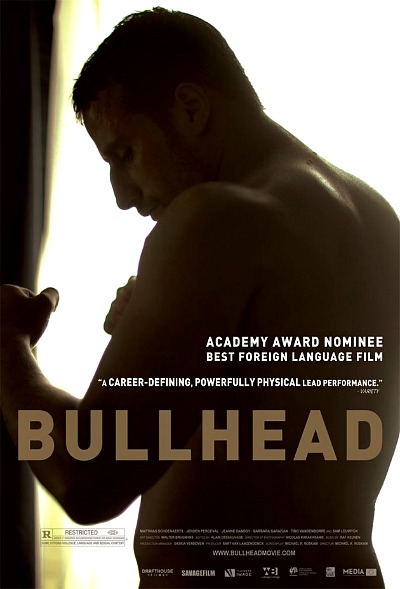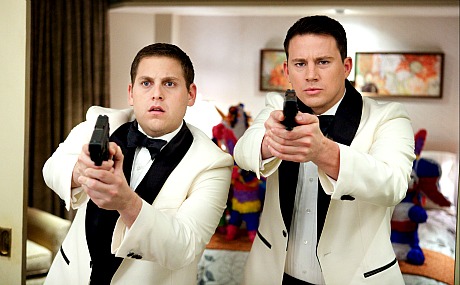Honestly? I’m on the fence about doing South by Southwest this year. Am I going to spend at least $1000 to $1200 (and probably closer to $1500) on basics to fly there and stay in a flophouse so I can see…what, 21 Jump Street and one or two other films that might be worth the hassle and expense? This is my concern, dude. I’m not saying the value isn’t there. I’m saying I don’t see it yet. This is a process, not a judgment.
Last year Bridesmaids debuted in Austin, and so did Undefeated, Weekend, Natural Selection and The Beaver. For me there was also Buck, although it had premiered at Sundance 2011. What is playing there this year that might be equal to this? Beats me. So I asked a few people for thoughts.
“I think it’s a pretty sensational line-up on paper,” replied Hitfix‘s Drew McWeeny. “SXSW was built on the low-fi, the marginal voices. It’s only really been the last five or six years where they’ve made the effort to balance the big and the small, the broadly mainstream and the intensely personal. They don’t do the same kind of Hollywood movies that Cannes does, for instance. I would argue SXSW has more idiosyncratic taste in terms of what they call ‘Hollywood.’ I doubt Cannes would play Observe & Report, but they sure were glad to show Pirates of The Carribean 4.
“I think if you don’t embrace each festival for its individual voice, then you probably shouldn’t go. Sundance is not Berlin is not SXSW is not Cannes is not Toronto. SXSW is sort of brash and scrappy and has a distinct attitude. It is in every way an Austin festival. I really liked what Matt Dentler did with it, but I would argue that Janet Pierson and her team have taken huge, huge strides in terms of cementing a place in the festival world that I would argue is as vital as any other fest out there.
“Cabin In The Woods makes huge sense for them. It’s not just a good horror film, it’s also a crazy clever meta-argument for why horror films matter at all and why we need red meat in our movie diet. 21 Jump Street makes sense the same way. The film is aggressively funny and a very sharp rip on the entire notion of updating TV shows for the cheap nostalgia cash-in. For the studio making a reboot of Spider-Man and a Men In Black 3 this summer to release a film that farts in the face of franchise thinking with as much cheek as 21 Jump Street, it’s downright punk rock.
“And if you’re still undecided, just read the plot synopsis for Frankie Go Boom. And I quote: ‘A flick by Bruce about his little brother Frank who’s a crybaby fuck who shouldn’t do lame-ass embarrassing shit if he dozn’t want people 2 see it.”
“If you’re not in by now, don’t book the plane ticket. Someone else can use your seat in the theater.”
I responded to McWeeny as follows: “I’m not looking for star-power. And I’m not looking for Sundance or Toronto or Berlin or anything other than a good nourishing film festival. I just don’t want to be asking myself on day #3 or #4 ‘why did I drop $1500 to come here?’ I’ll tell you right now that movies like Frankie Go Boom are DEFINITELY NOT WORTH MY HARD-EARNED CASH. Fuck it if that’s the cream of the crop. I’m just asking where are the three or four films that I’m probably going to feel really bad about missing?”
A fellow journalist said roughly the same thing: “I debated going myself, but the real motive is not to miss anything.”




